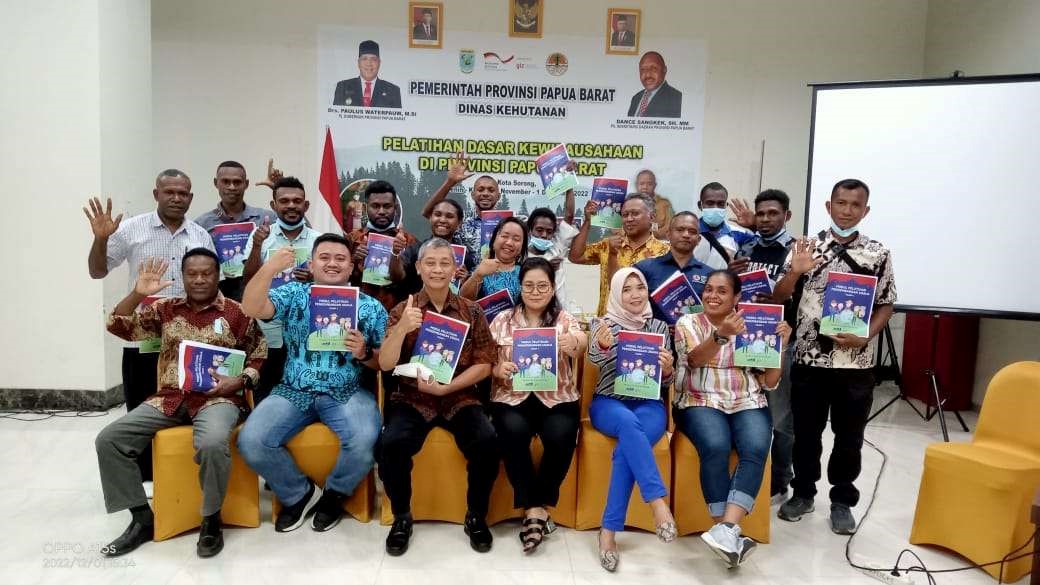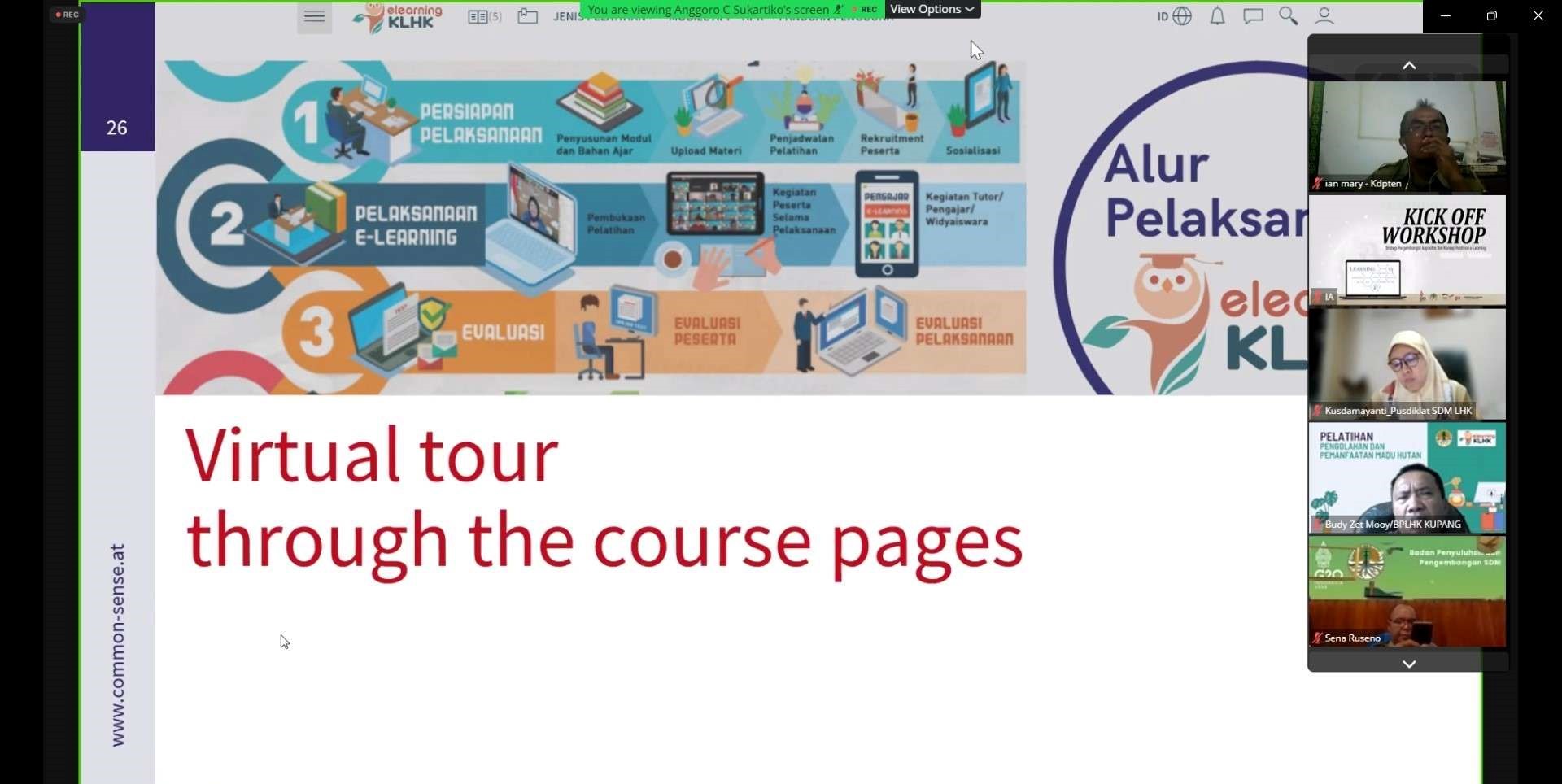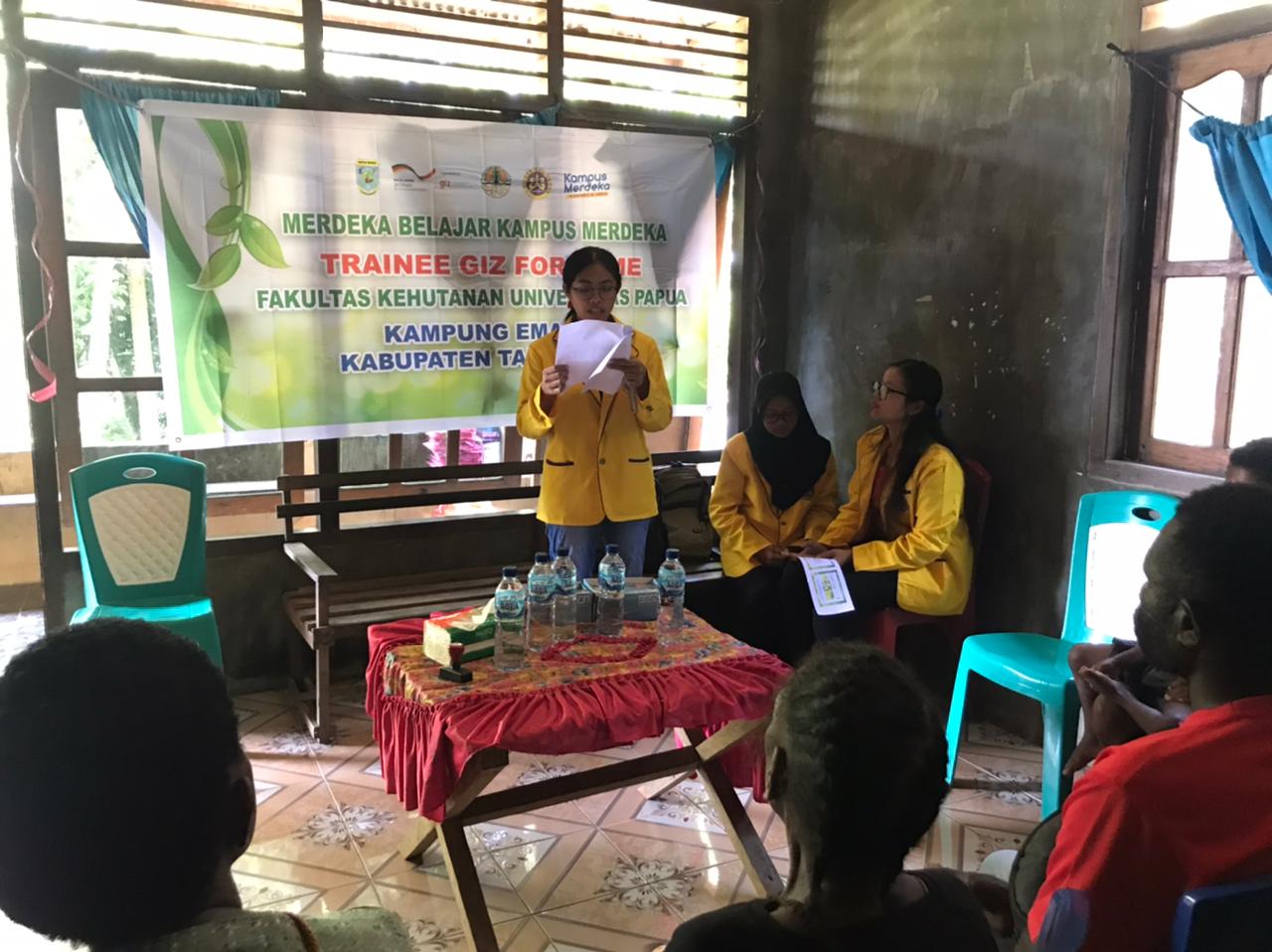FORCLIME
Forests and Climate Change ProgrammeTechnical Cooperation (TC Module)

Select your language

FORCLIME has a mandate to facilitate and provide support for the development of Forest Farmers Group businesses in supported villages through both the Local Community Strengthening Programme and Forest Management Units. This programme aims to strengthen Forest Management Units in terms of the provision and facilitation of skills that relate to business development, as well as support for forest farmers groups with an eye on independent and sustainable business development.
In line with this remit and working in conjunction with the West Papua Provincial Forestry Service, FORCLIME held a number of training sessions on basic business development for forest farmer groups and their facilitators (extensions) from the Forestry Service and the West Papua Natural Resources Conservation Center from 28 November - 1 December 2022 in Sorong, West Papua. The training sessions were opened by the Head of Forest Development and Social Forestry at the West Papua Provincial Forestry Service, Yunus Krey, S.Hut., M.Sc. and were attended by 24 participants.
After the opening session, the general atmosphere in the training classes became livelier due to the presence of the Training Team from RIWANI Globe, a business development and human capital consulting agency. The Training Team invited the training participants to formulate rules for the sessions and to appoint a class leader from one of the participant representatives. The hope was that through the class leader, the participants would be able to position themselves not only as objects of the training sessions but also as their main subjects (actors).
On the first day, the Training Team presented a number of brainstorming materials that covered the following areas: (1) Why do you work in groups?; (2) Knowing the purpose of the group; and (3) Making business ideas. The training became increasingly interactive and was supported by several microlearning tools such as meta-plans and mind mapping.
On the second and third days of the sessions, participants learned more about product value chains, business model maps and marketing, and also enjoyed an introduction to business and production planning.
The final session was of particular importance as the participants were expected to draw up action plans. During this activity, the trainers divided the participants into two groups, namely the forest farmers groups and facilitators, resulting in two action plans. It is hoped that in the wake of the formulation of the action plans, the participants will be able to follow business licensing procedures consistently and apply the various materials that they experienced during the training sessions.
In order to follow up on the basic business development training, an online coaching session is planned for early 2023.
For more information, please contact:
Wira Hakim, Advisor for Human Capacity Development
Edy Marbyanto, Strategic Area Manager for Human Capacity Development

The HR Training Center for Environment and Forestry (Pusdiklat SDM LHK), which is being supported by FORCLIME, held an online dissemination session on the eLearning training plan for structural and functional officials at the Center for HR Training for Environment and Forestry and the Environmental and Forestry Training Center on 28 November 2022. The meeting aimed to ensure that all officials working at the Training Centers, including trainers, functional officials working for learning technology developers and administrative employees of Education and Training organizers, understood the eLearning training plan that will be implemented by the LHK HR Training Center in conjunction with FORCLIME.
"We as training institutions must continue to learn, so that we can continue to share knowledge with those who need it," stated the Head of the LHK HR Training Center, Dr. Kusdamayanti Duryat, at the opening of the event.
The training plan will be implemented online by the LHK HR Training Center, specifically through processes of self-study and tutorials, and will run from early December 2022 until early January 2023. Meanwhile, face-to-face or offline training will commence at the end of December 2023.
For more information, please contact:
Edy Marbyanto, Strategic Area Manager for Human Capacity Development
Wira Hakim, Advisor for Human Capacity Development

The Production Forest Management Unit (KPHP) Unit IV of Tambrauw and KPHP Unit V of Sorong Selatan, supported by FORCLIME, recently held a dissemination session that specifically addressed the protection and utilization of forest resources by forest farmer groups in four supported villages, namely: Kampung Haha and Kampung Wendi (South Sorong Regency), and the villages of Bikar and Emmaus (Tambrauw Regency). These sessions were held from 18 - 30 November 2022.
These dissemination sessions on the protection and utilization of forest resources aimed to educate the parties concerned regarding the importance of forests in supporting the lives of living things. The topics presented during the session were: The impact of environmental damage and the utilization of non-timber forest resources (Myrmecodia pendans for herbal tea, agarwood, candlenut and oil made from Cinnamomum culilawan).
This outreach activity was delivered by six students from the Department of Forestry, Faculty of Forestry at the University of Papua, Manokwari, West Papua who were completing internships with FORCLIME. These intern apprentices were placed in FORCLIME-supported villages to support the implementation of Social Forestry programmes at the site level, as follows:
1. Adrian Maulana and Nur Ulfa Fauziah at Kampung Bikar.
2. Eliza Samosir and Kesya Daeng at Kampung Emaus.
3. Jekson Tigtigweria at Kampung Wendi.
4. Steven Angrianto at Kampung Haha
The outreach methods used encompassed the watching of videos on forests and their functions, the distribution of brochures and the telling of stories.
“It's good to participate in an event like this so that we can learn about the benefits of agarwood. To date, we have only known that agarwood can be used as a medicine, however, we have not known exactly what such medicine can be used for,” stated Mama Kamesrar, a resident of Kampung Haha.
For more information, please contact:
Melanesia Brigite Boseren, Junior Advisor for Rural Livelihood, Forest Management and Conservation
Nita Yohana, Adviser for Sustainable Forest Management and Coordinator for West Papua Province
Mohammad Sidiq, Strategic Area Manager for Sustainable Forest Management and Coordinator for Papua and West Papua Provinces
 |
Supported By: |
  |